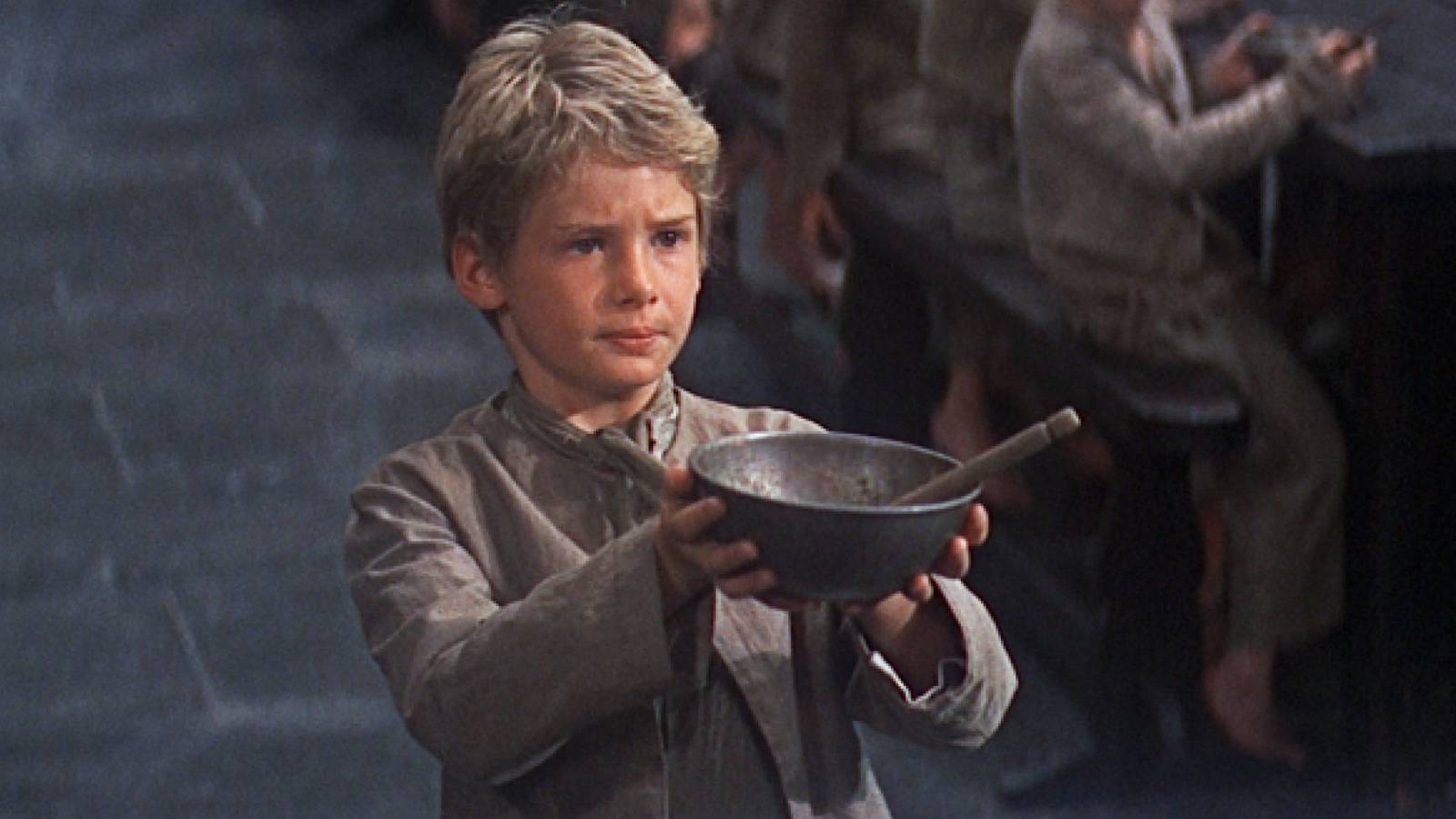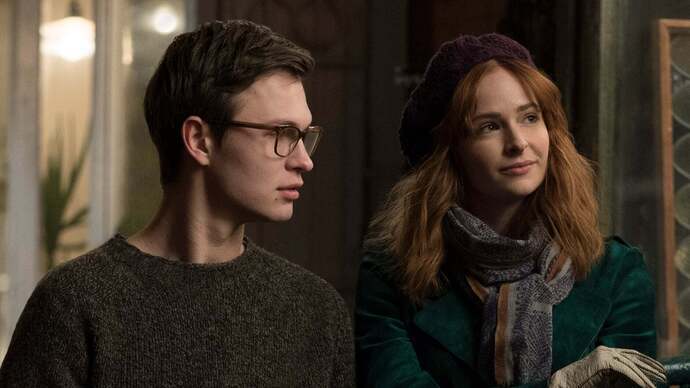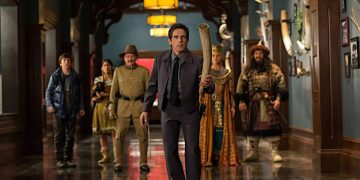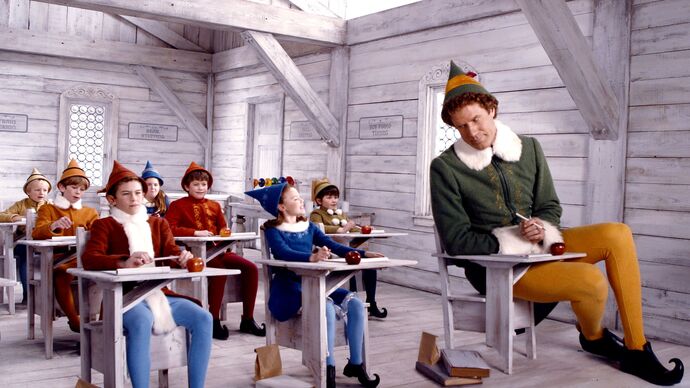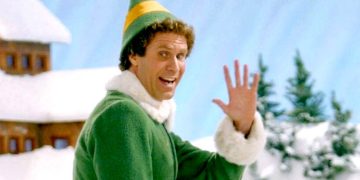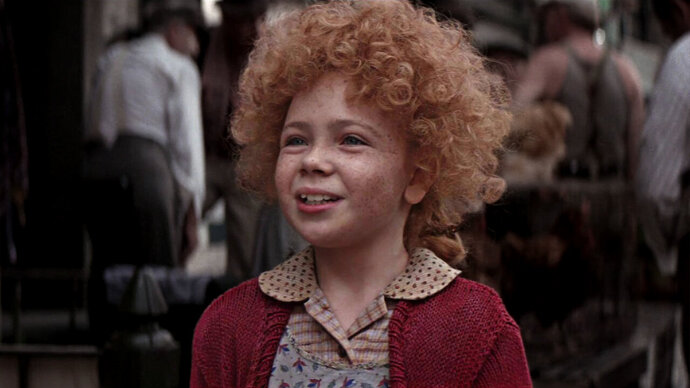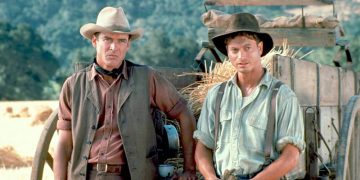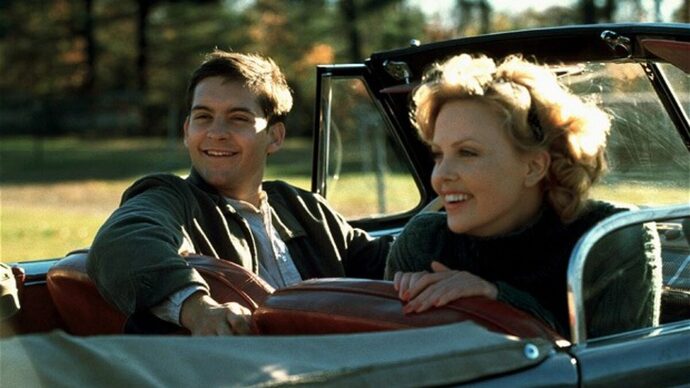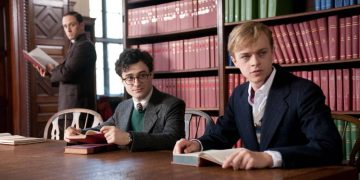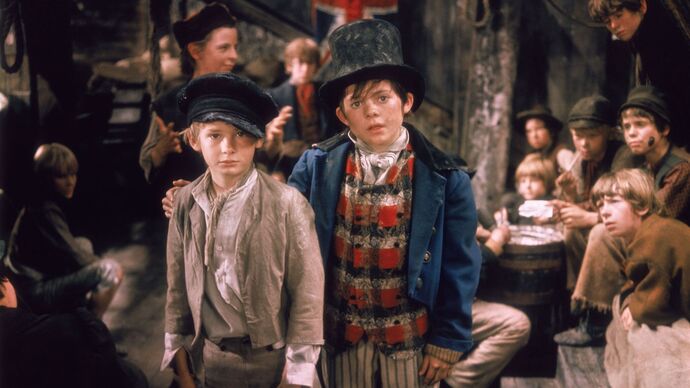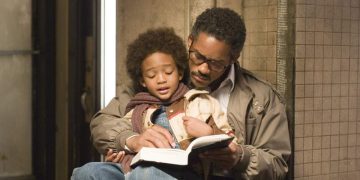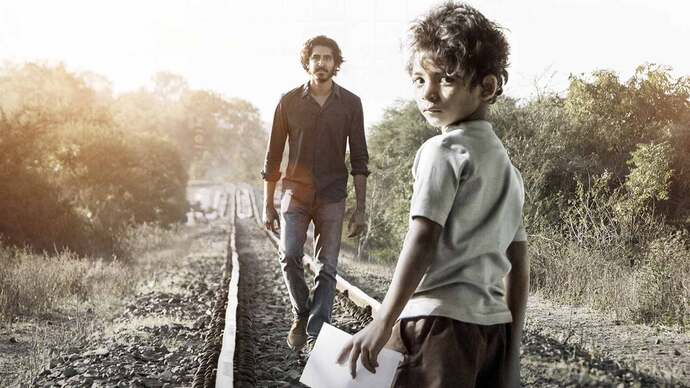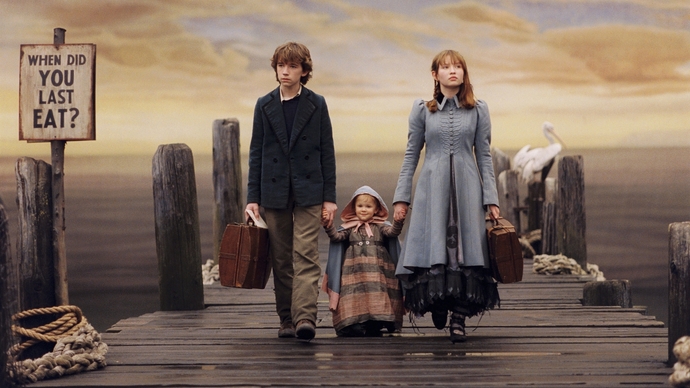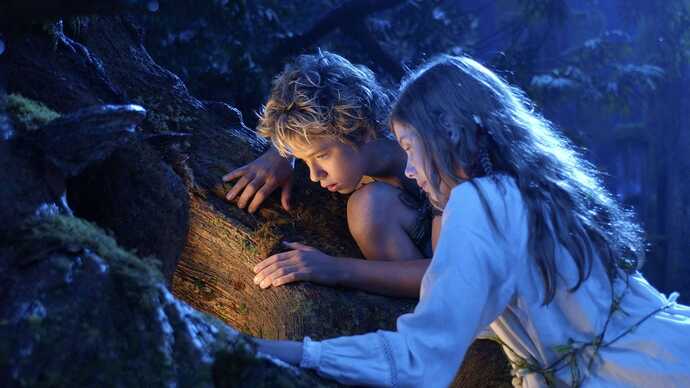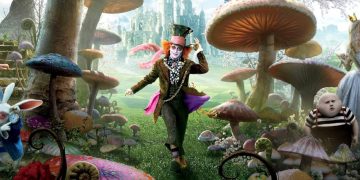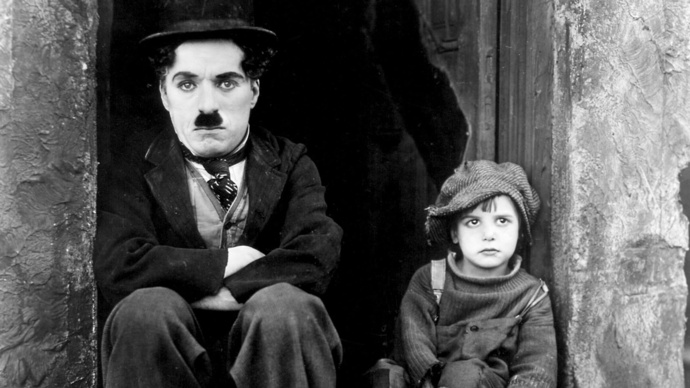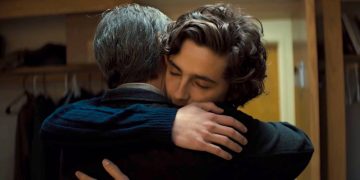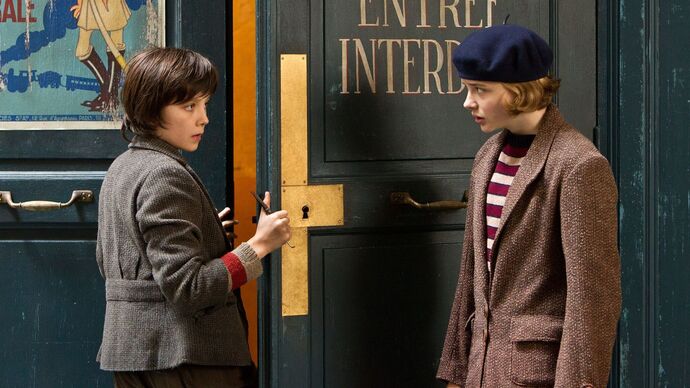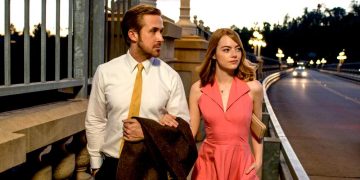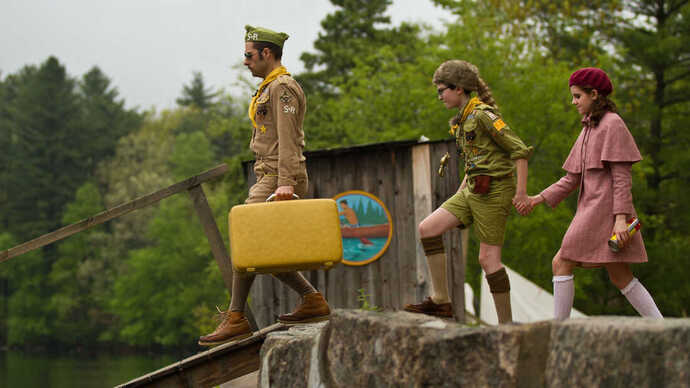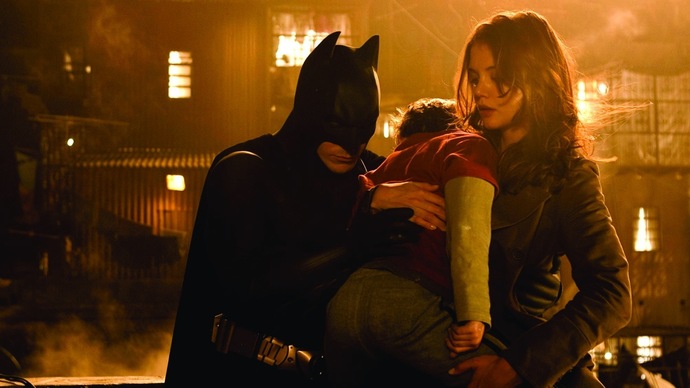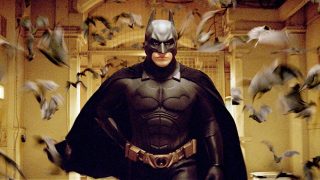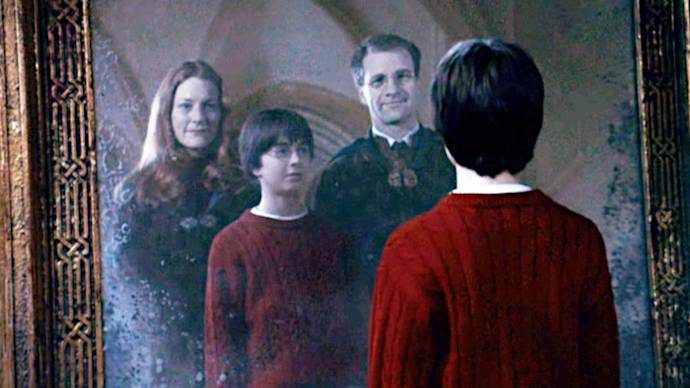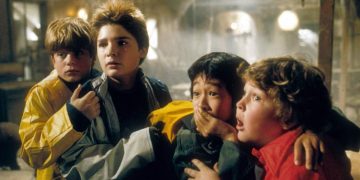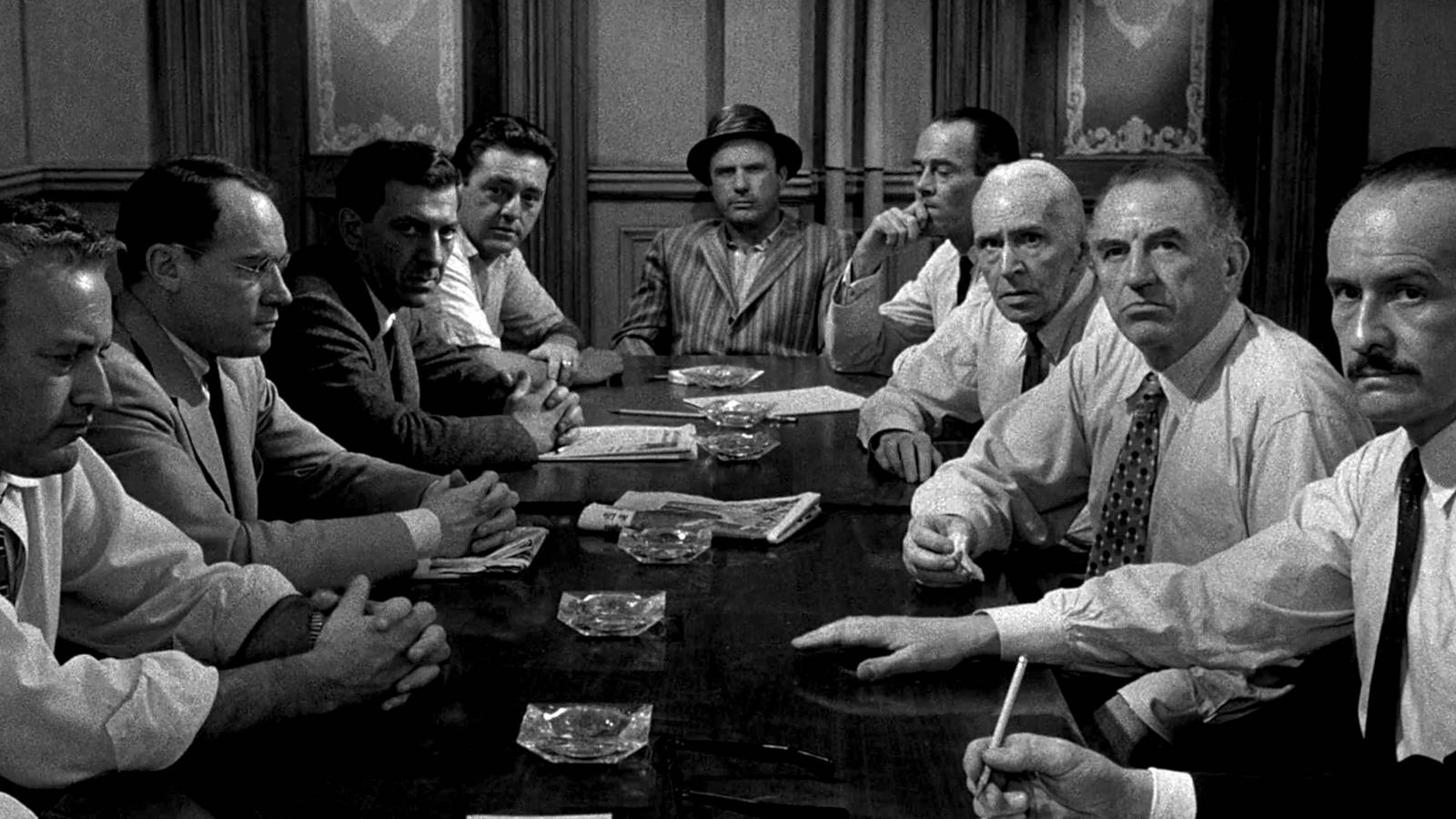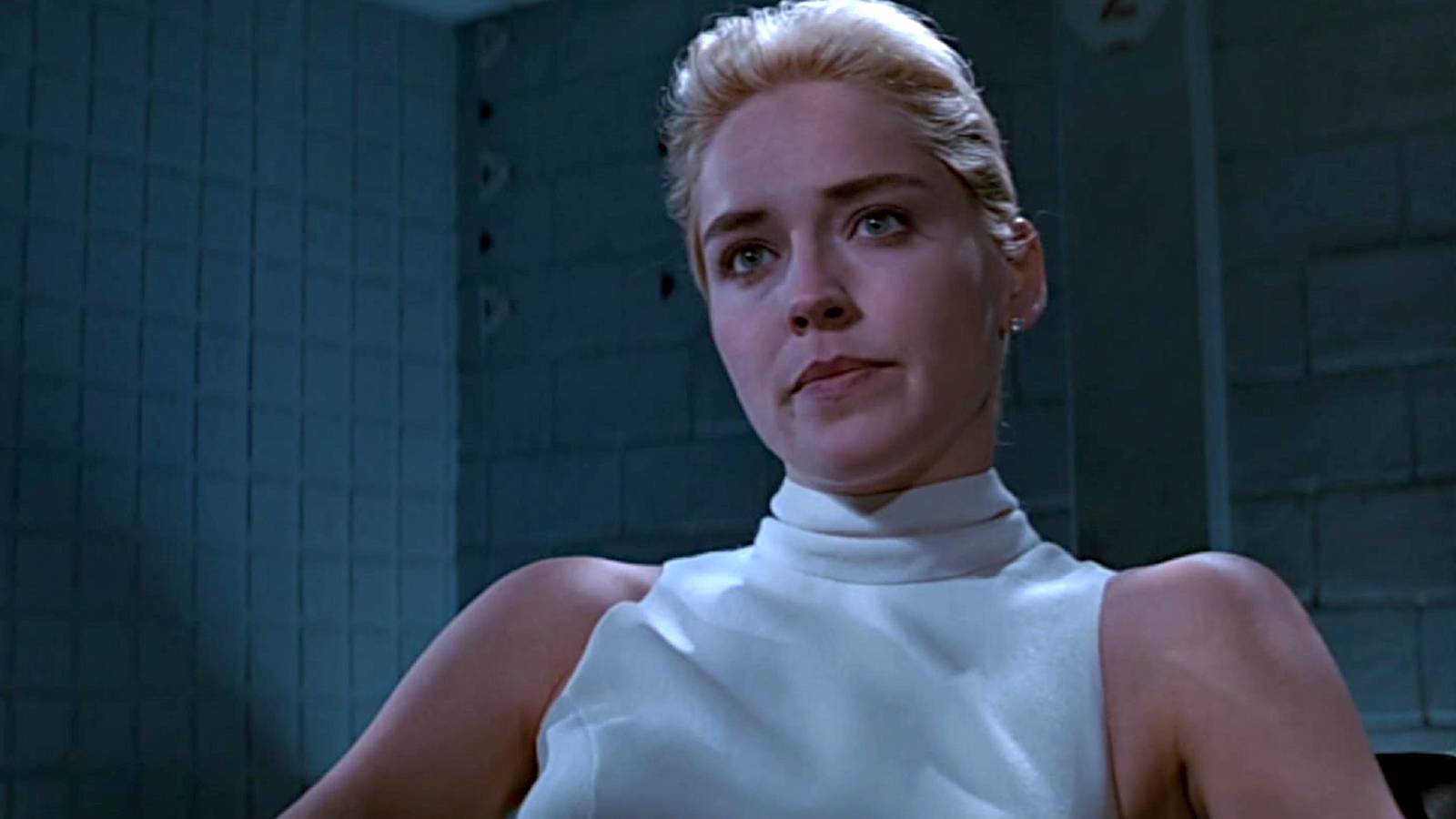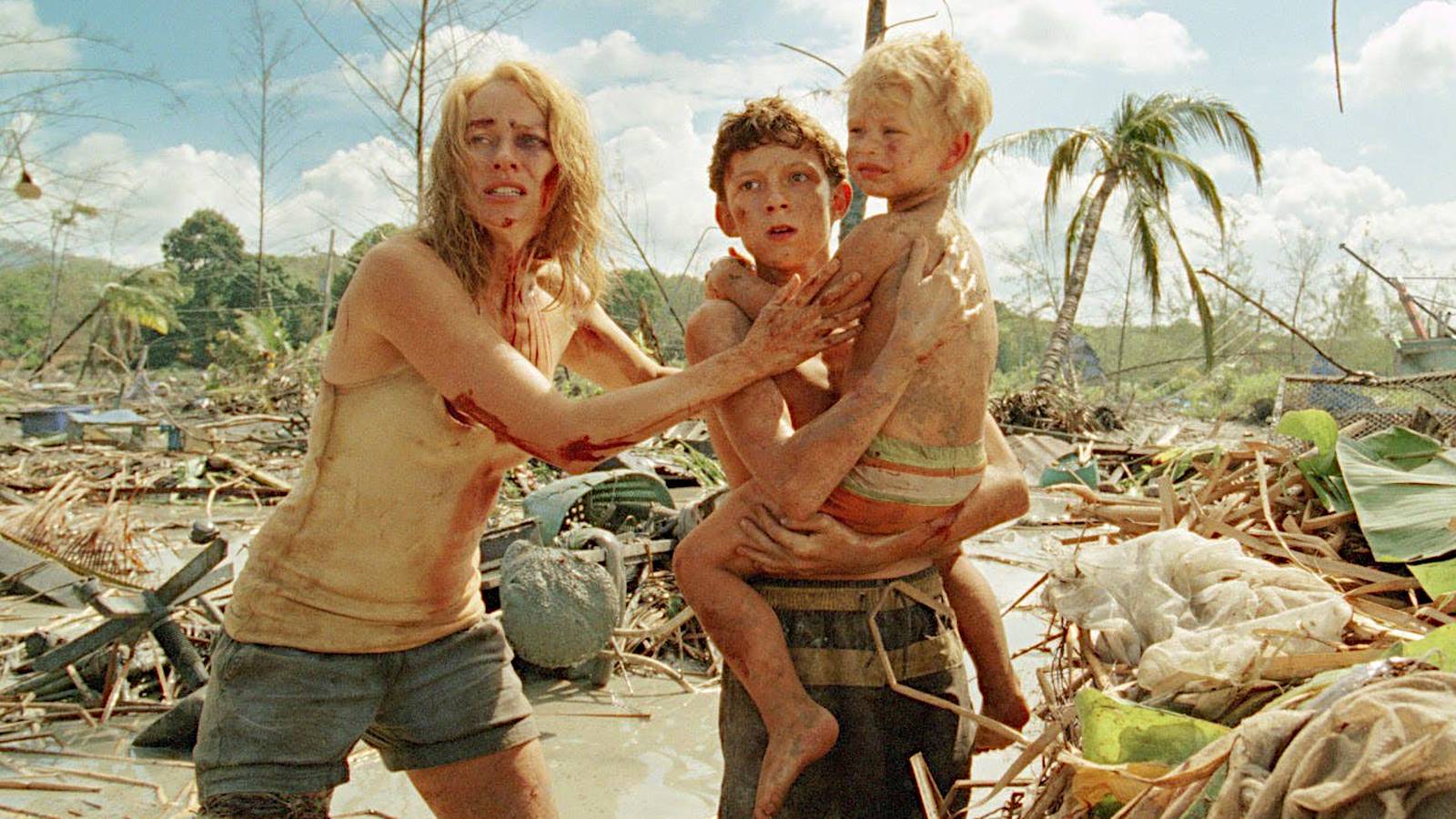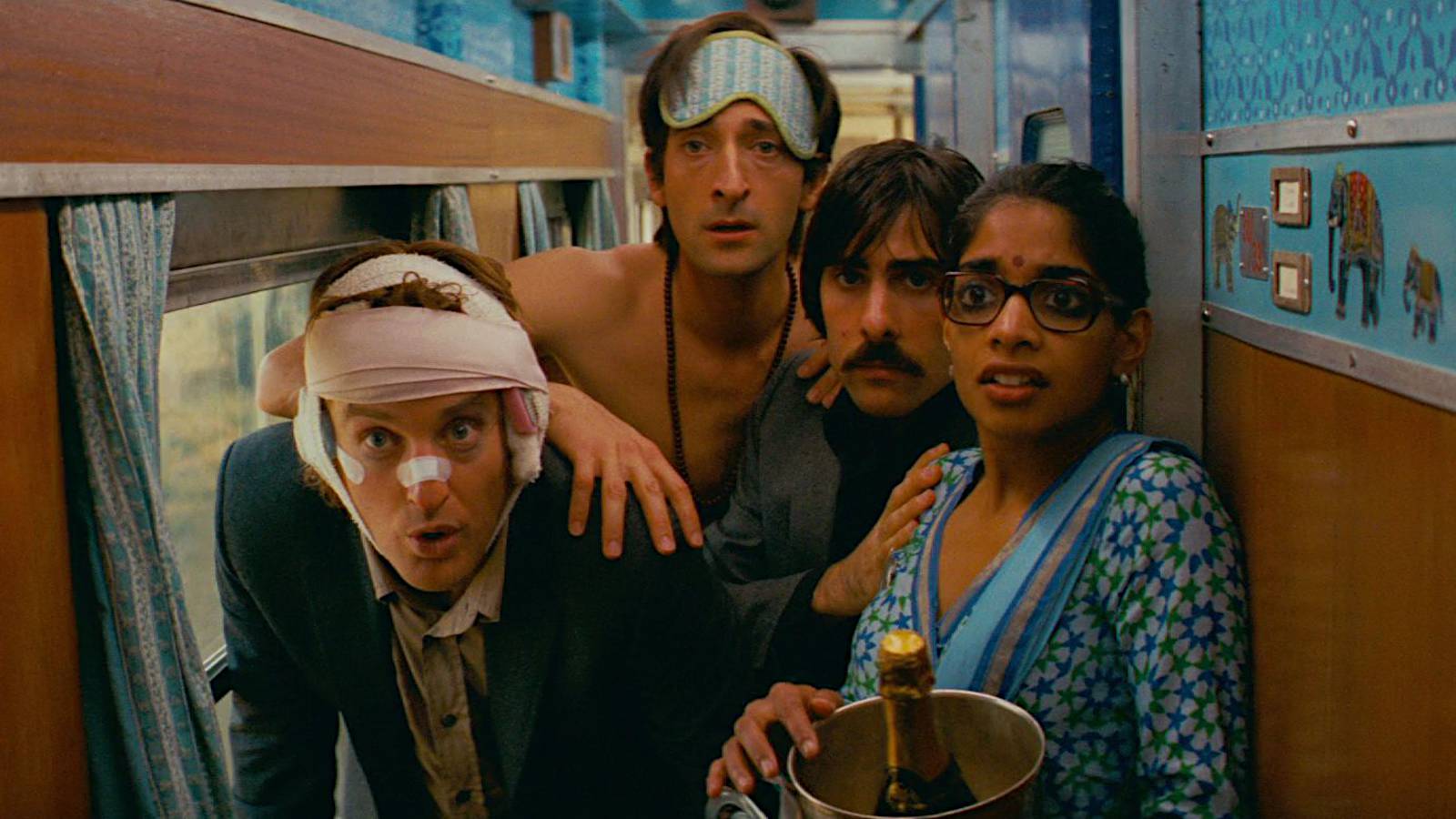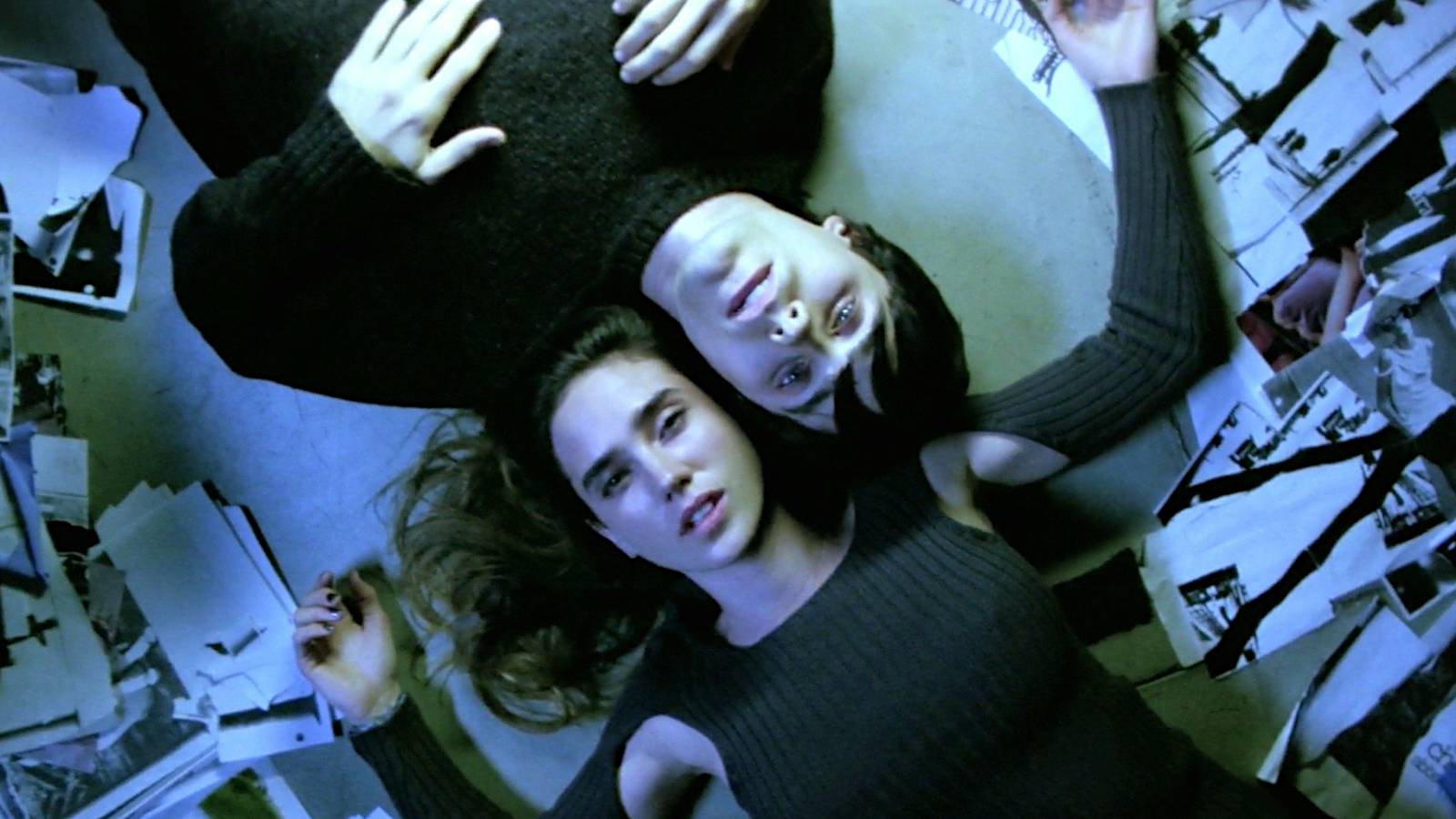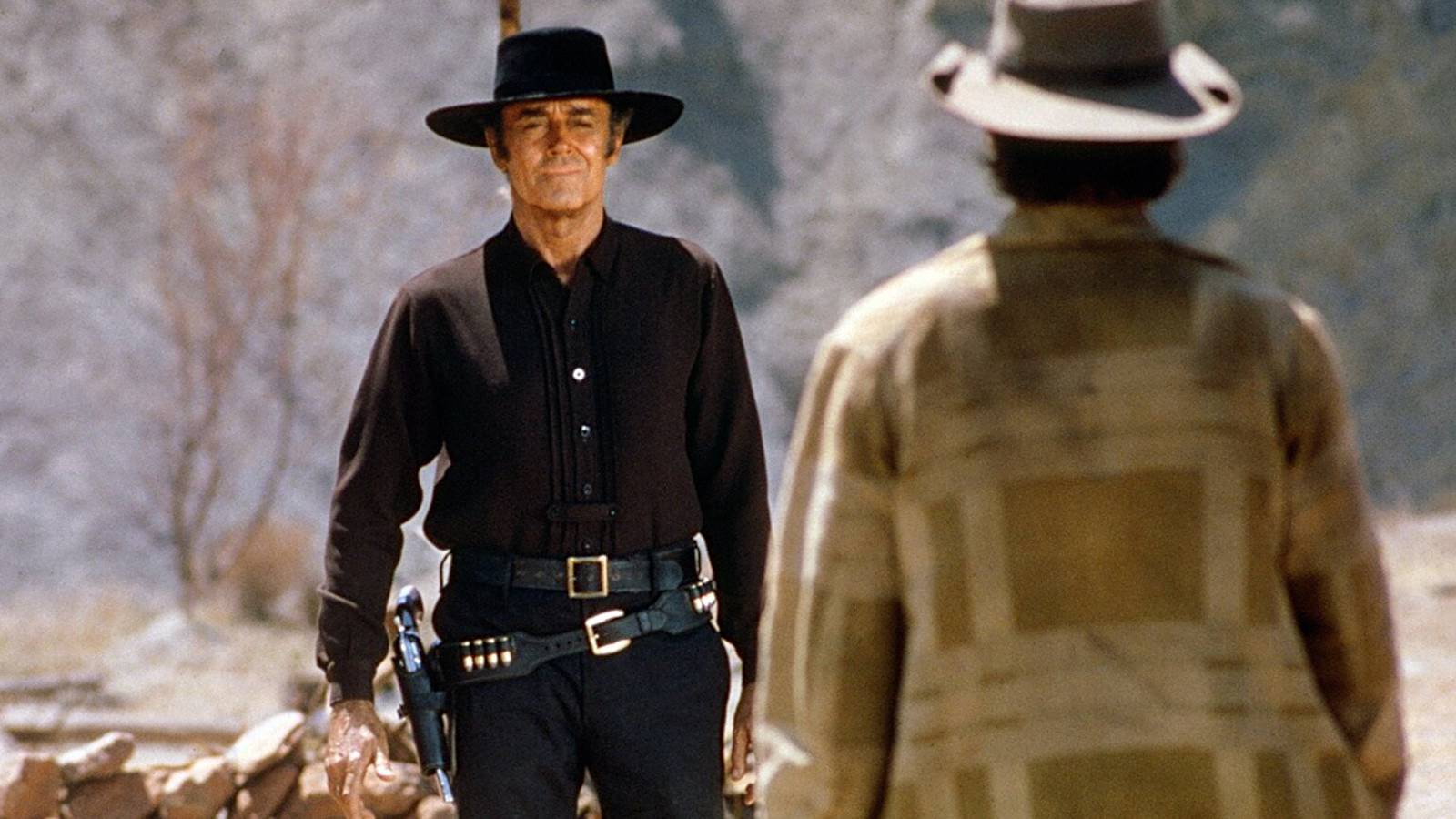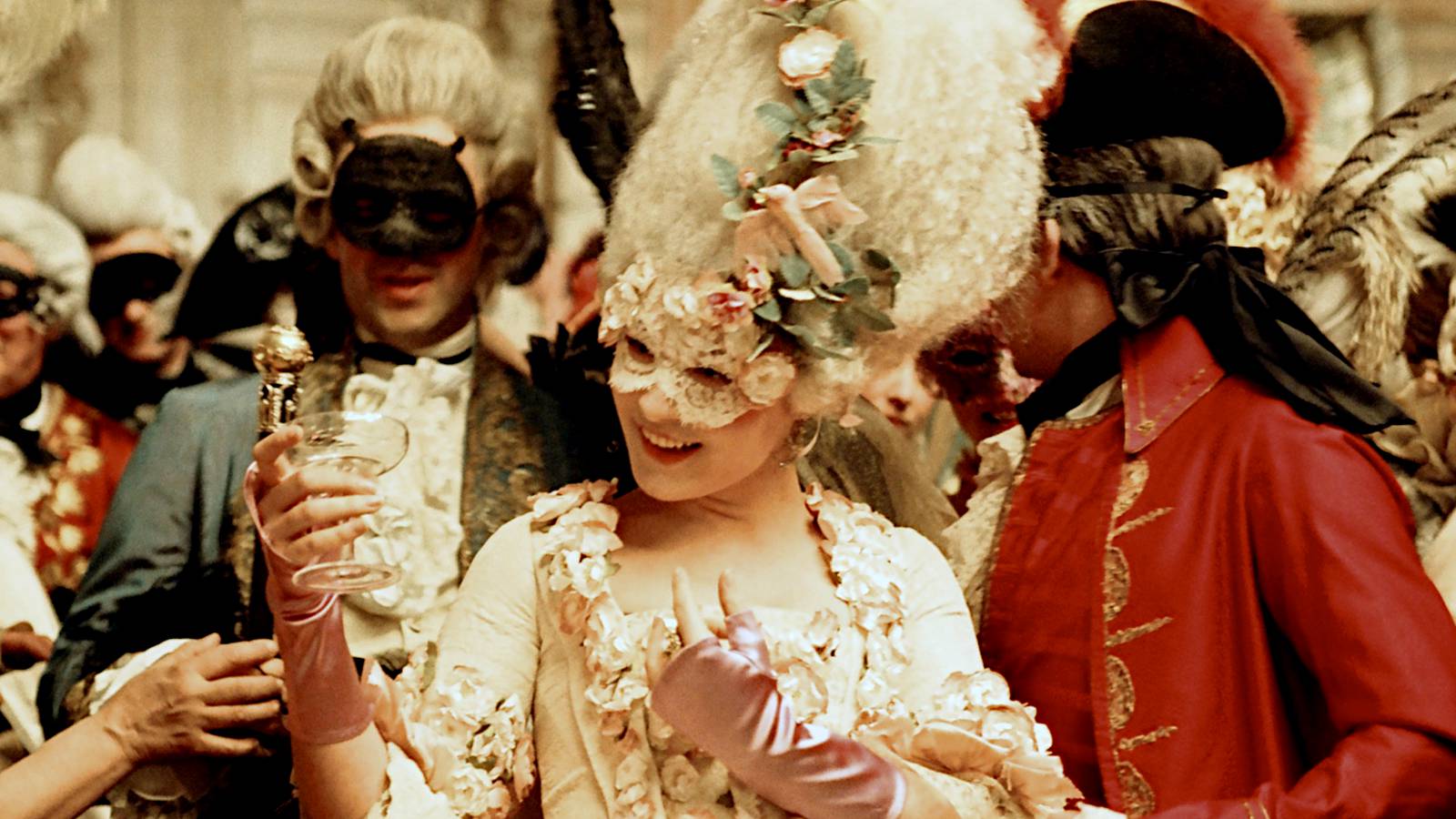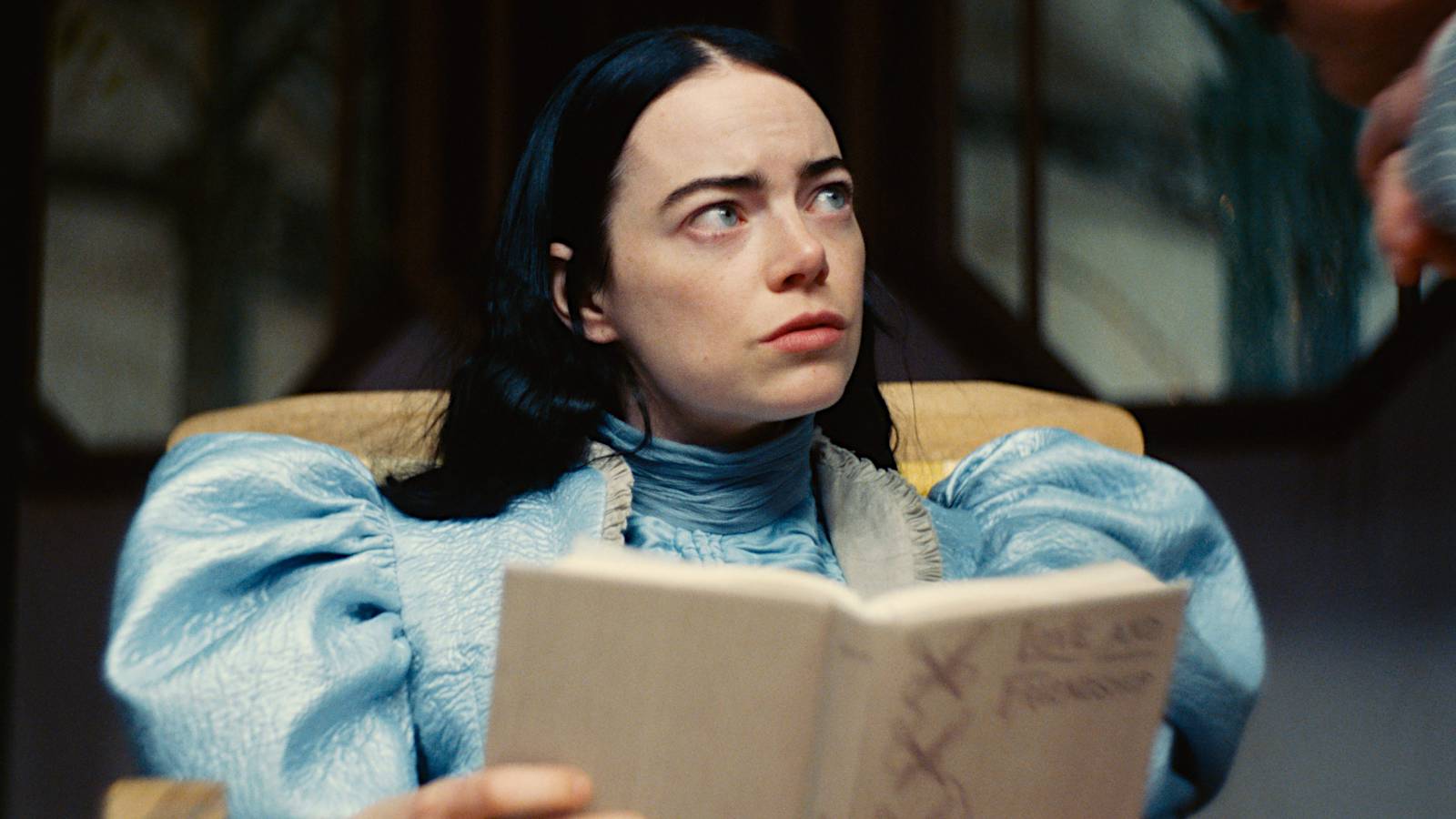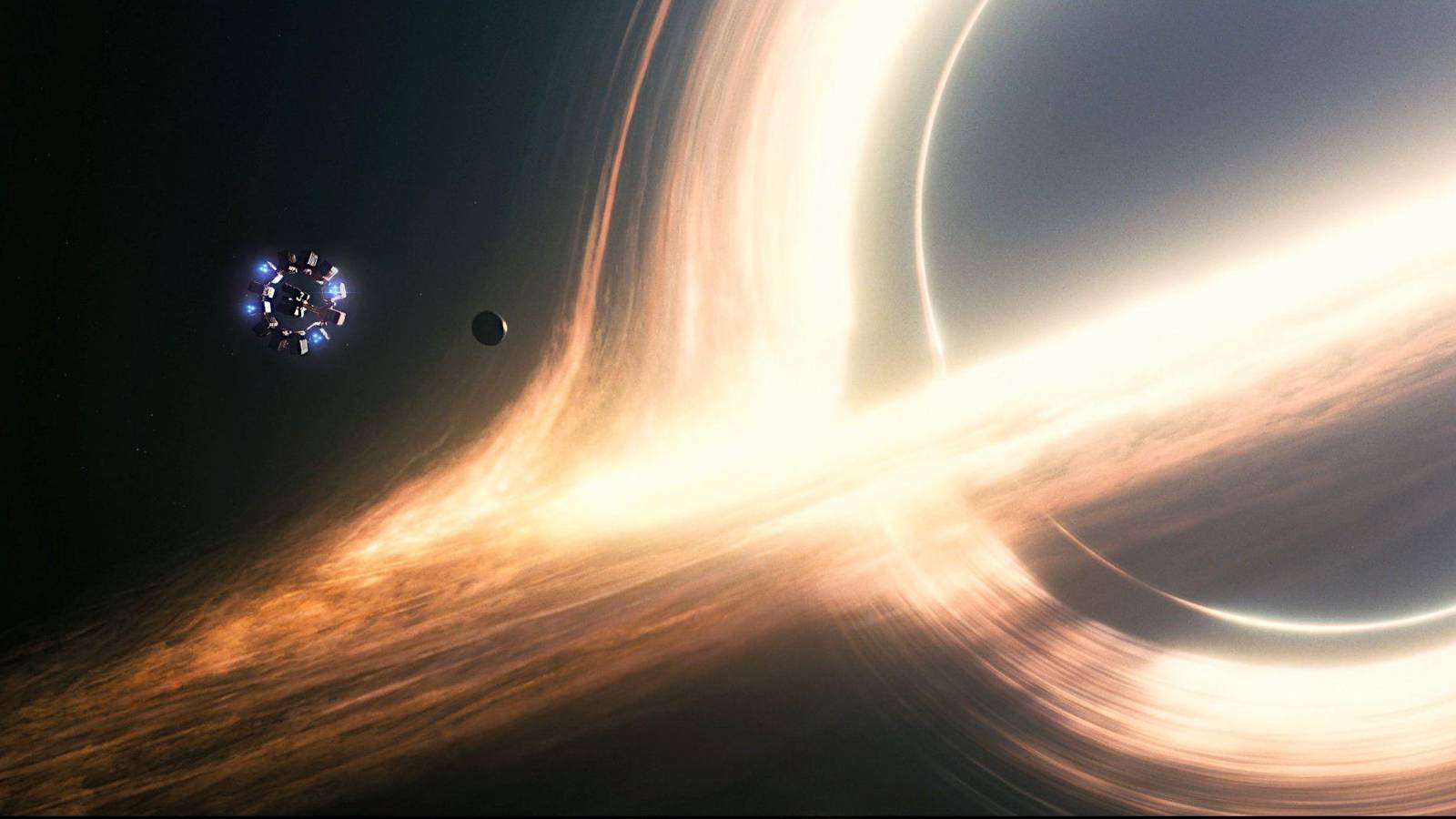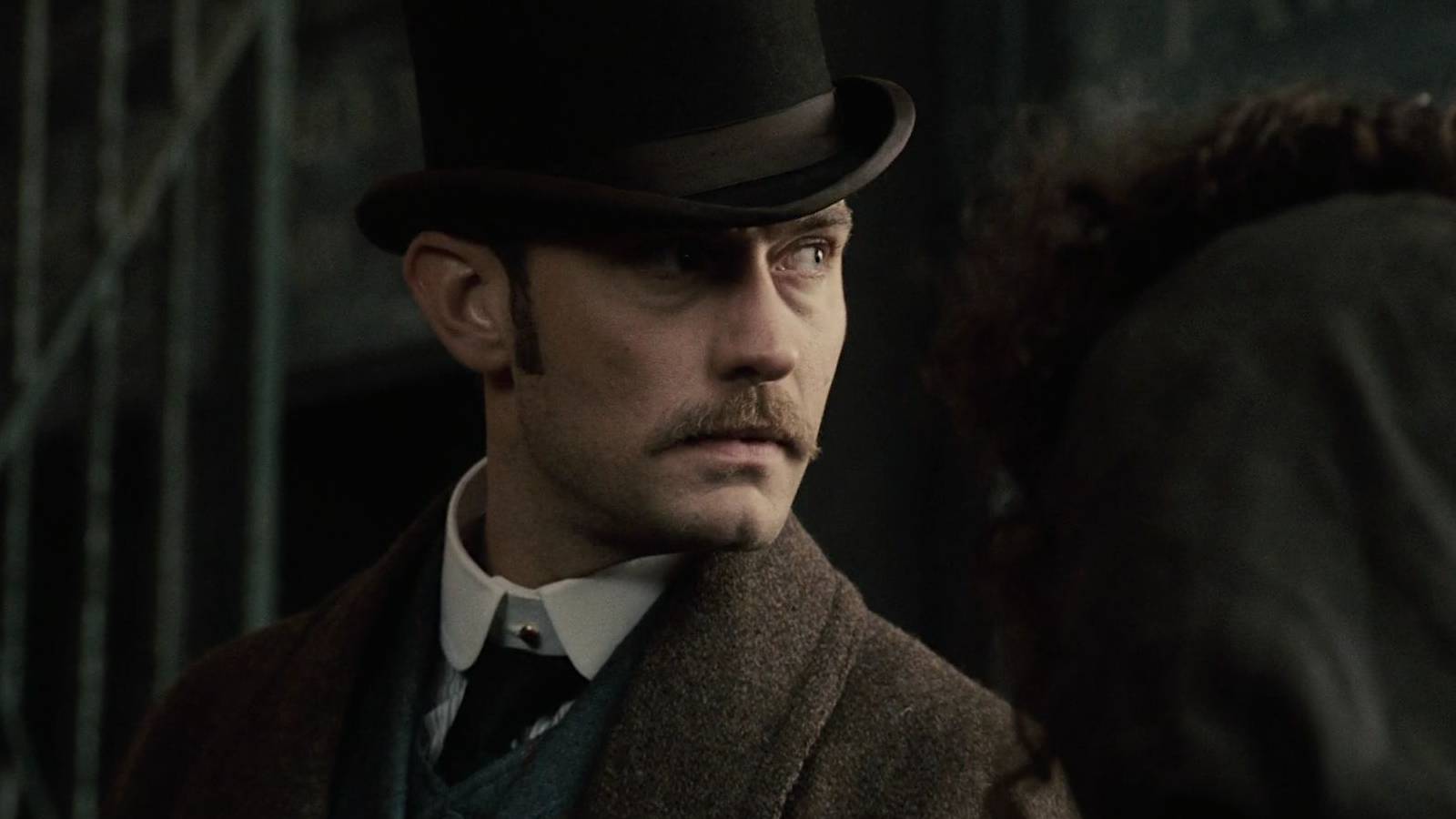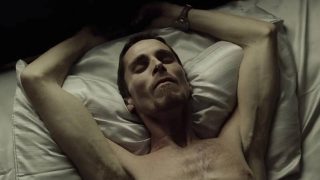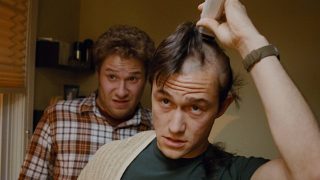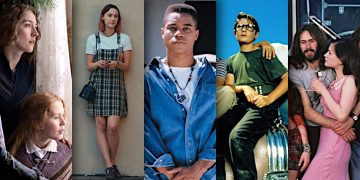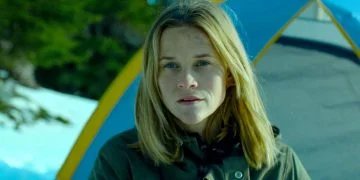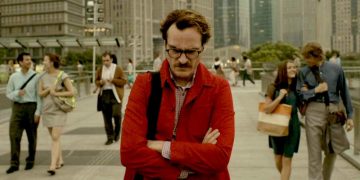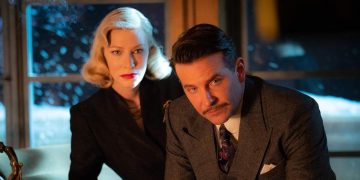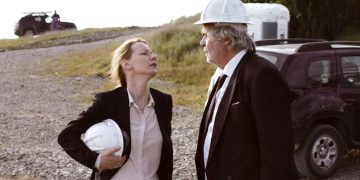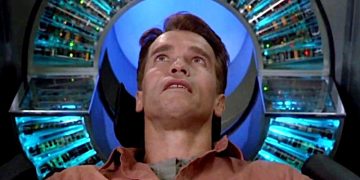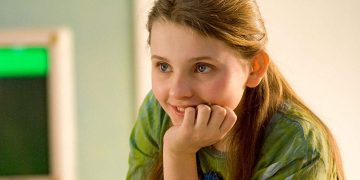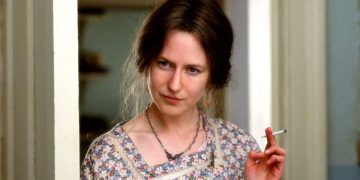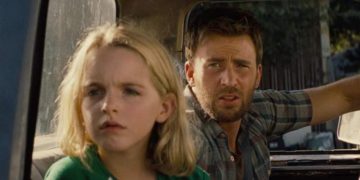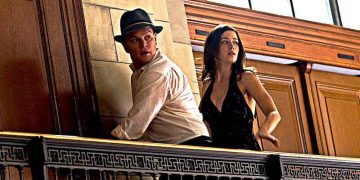13. The Goldfinch (2019)
Adapted from Donna Tartt’s 2013 book,The Goldfinchswitches between time periods to show Theodore Decker grappling with grief and loss, both in his childhood and his adolescence.
These two time periods are pivotal for forging one’s identity, and that’s certainly true for Theodore (who’s played by Ansel Elgort and Oakes Fegley in these two different stages of life).
After a dying man urges Theodore to steal a painting from the museum where his mother was killed, he’s still trying to figure out the meaning of Carel Fabritius’s artwork eight years later. Does it have a link to his mom? If so, what could it be?
The Goldfinchplays out like a treasure hunt that involves finding symbols, clues, and connections to Theodore’s past, all extracted from the Pulitzer Prize-winning novel.
Related:The Best Movies Featuring Museums and Art Galleries
12. Elf (2003)
Can you imagine being adopted by Santa Claus? Buddy (played by Will Ferrell) might be an orphan, but there’s no stereotypical Dickensian orphanage here. Instead, he spends his childhood somewhere that’s even better than a candy shop—the North Pole.
Only problem is, Buddy assumes he’s one of the rosy-cheeked, toy-making elves… until he overhears one day that he’s actually human. (Being triple the size of everyone apparently didn’t give it away.)
So, Buddy decides to venture out into the real world to find his real dad and experience a real childhood—which, of course, doesn’t happen because he’s a fully grown man… who needs to get a job… and his father’s on the naughty list… (Cue exaggerated gasp.)
Related:The Best Christmas Movie Characters
11. Annie (1982)
Annie (played by Aileen Quinn) grows up in a Dickensian orphanage, asking things like “Santa Claus, what’s that? Who’s he? No one cares for you a bit when you’re a foster kid. It’s the hard-knock life!”
She asks this in song form, being the titular character of the comic-strip-turned-Broadway-show-turned-Hollywood-movieAnnie.
But despite the Victorian-looking rags,Anniedoesn’t actually take place in an all-girls orphanage across the road from Oliver Twist’s digs. This story actually takes place during the Great Depression.
Cramped up in New York City apartments, Annie wins a get-out-of-jail-free card from the alcoholic warden when a billionaire selects her to stay at his place… for a week, anyway.
Related:The Best Movies Set in the 1930s (Great Depression)
10. The Cider House Rules (1999)
InThe Cider House Rules, Michael Caine plays the “caretaker of many, father of none” at St. Cloud’s Orphanage. He’s a sweet pro-choice doctor who happens to be coveting an ether addiction.
The closest thing Dr. Larch has to a son is Homer Wells (played by Tobey Maguire), the oldest of the kids there, whom Larch trains to help out in the medical ward.
This cozy family drama tracks Homer as he flees the nest, but St. Cloud’s remains in his heart throughout his adventures like an old friend, all before returning to Homer in a circular narrative.
An old-timey, feel-good, affectionate period piece,The Cider House Ruleshas a Dark Academia feel about it thanks to its early 20th century New England setting and origins as a John Irving novel.
Related:The Best Dark Academia Movies
9. Oliver! (1968)
Now for a movie that actually features a Charles Dickens orphanage! You know, the one that gave us the most famous orphan of all, who begs the iconic line: “Please, sir, I want some more.”
The archetypal stray child, Oliver Twist—who frequently appears on stage and screen, played here by Mark Lester—is dressed in tatters while slaving in the workhouse under a cruel dictatorship.
Let loose in the city of Victorian London, Oliver scrabbles to find an income, a guardian, and a place to call home, learning a potent lesson about stranger danger along the way.
Director Carol Reed weaves this coming-of-age classic together with an iconic soundtrack and pickpockets who break into flash mobs, all while we tap along to “Consider Yourself.”
Related:The Best Movies About Poverty and Homelessness
8. Lion (2016)
Orphan narratives are often forced to explore the idea of split identities. Children’s lives are either shaken up and given new direction with a new family and a new home out of the blue, or else they can’t remember their real parents at all and long to learn about their lost origins.
Saroo (played by Dev Patel) can technically recall his childhood back in India, but it’s only in scraps because it happened twenty years ago. At five years of age, Saroo got lost on a train to Calcutta and lived rough for months before he was placed in an orphanage.
After an Australian couple adopts him, Saroo has a pleasant Gold Coast upbringing, but he can’t help but be drawn back to the images of his old, poverty-stricken hometown on Google Maps…
Related:The Best Movies About Mother-Son Relationships
7.Lemony Snicket’s A Series of Unfortunate Events (2004)
For the Baudelaire children, their parents are still crystal clear in their minds, having grown up into their teens (well, except for the baby) in a warm and loving household.
The mystery of the fire that killed their parents entices the genius inventor Violet (played by Emily Browning) and genius bookworm Klaus (played by Liam Aiken) to investigate, which would be a lot easier if they weren’t being shifted from one guardian to the next.
Each surrogate parent is more eccentric than the last in this Gothic comedy-drama, but none of them last very long because the theatrical villain Count Olaf (perfectly embodied by Jim Carrey) keeps bumping them off for the inheritance money!
6. Peter Pan (2003)
The Lost Boys inPeter Panare a gang of mischievous orphan boys who follow a vague paternal figure: Peter Pan, the leader and consult of the group despite only being a kid himself.
Flying around the magical fantasy realm of Neverland, fighting pirates and talking to fairies, Peter Pan (played in this version by Jeremy Sumpter) refuses to grow up.
It’s every kid’s dream to live free of rules and adults, but when Peter drags the Darling siblings across the stars to experience a boundless fairy tale, in the end all they want is a warm hug from their mother.
Related:The Best Fantasy Worlds and Magical Realms in Movies
5. The Kid (1921)
Over 10,000 silent films were made during the early years of cinema, butThe Kidremains among the most famous of them.
Charlie Chaplin’s revolutionary invention of the comedy-drama meant you could have all the fun of slapstick gags while still engaging with sympathetic characters on a deeper, dramatic level.
To this day, viewers continue to fall in love with his caricature The Tramp, who was silly, kind, laughable, and piteous.
The Kidis essentially one of the first dramedy movies ever made, where The Tramp stumbles upon an abandoned baby with a note: “Please love and care for this orphan child.” That’s exactly what he does.
Related:The Best Movies About Father-Son Relationships
4. Hugo (2011)
Hugo (played by Asa Butterfield) is desperate to finish the project he and his father (played by Jude Law) have started. By any means necessary. Stealing, dodging police, escaping social services, you name it!
It’s not just because he’s curious about what this automaton does, but because he mourns his father and finishing it will somehow bring them back together (metaphorically speaking).
Living inside the walls of a Parisian train station in 1931, Hugo secretly repairs the machine man. He feels himself like a spare part in the world, and this last connection to his father’s memory becomes a light that shines him “all the way home.”
Directed by Martin Scorsese,Hugois a celebration of the magic of cinema and the history of storytelling, using the movies as a resting place for the lost and orphaned.
Related:The Best Movies About Making Movies
3. Moonrise Kingdom (2012)
Moonrise Kingdomisn’t as deep of an introspection into self-discovery that some of the other movies on this list might be. It’s more about first love and that childish sense of wonder.
But the fact that Sam (played by Jared Gilman) is an orphan no doubt feeds into his desire to run away from home!
Sadly, his rendezvous with pen pal Suzy (played by Kara Hayward) causes Sam’s foster parents to give him back to social services because this isn’t the first time he’s acted out. Fortunately, he gets a new and better father figure out of it in Captain Sharp (played by Bruce Willis).
Moonrise Kingdomhas all the makings of a fabulous Wes Anderson film: a famous cast of oddball characters, obscure adventures, pastel colors, satisfying symmetry, and plenty of birds-eye shots.
Related:The Best Movies About Crushes, First Loves, and Young Love
2. Batman Begins (2005)
More often than not, superheroes are orphans who must carve out their own direction, identity, and morality. It’s an easy way to evoke empathy and expose characters to dangerous situations.
Out there in the big, bad, crime-ridden world, with no parent to shield them, heroes take it upon themselves to deliver justice.
Superman, Spider-Man, and Batman make up the three pillars of the superhero genre, and they all happen to be orphans. But for me, it’s the Dark Knight Trilogy that stands out as the crème de la crème of comic book movies, and that one started withBatman Begins.
Directed by Christopher Nolan,Batman Beginsdepicts a young Bruce Wayne knelt beside his dying parents, and it’s this rainy scene that motivates Bruce to become one with the bats and continue his father’s Gotham-saving legacy in the shadows for another two movies.
Related:The Best Origin Story Movies
1. Harry Potter and the Sorcerer’s Stone (2001)
When we first saw the opening scene of Richard Harris stealing lights from lamp posts down Privet Drive, who knew that this film would explode into the top five biggest movie franchises of all time?
Chris Columbus introduces us to J. K. Rowling’s Wizarding World with a shot of a baby on a doorstep, where Harry Potter is left to be cared for by his mean Muggle relatives.
After discovering he’s a wizard and flitting off to Hogwarts, learning to use spells and defeat creatures more suited to evil lords than school kids, Harry (played by Daniel Radcliffe) takes on the big boss: Voldemort.
Sure, he’s doing it to save the entire magical race, but the main catalyst for fighting evil is the fact that Voldemort killed Harry’s parents—whom he obsessively watches in the Mirror of Erised and is constantly reminded that he looks like for eight entire movies.
Related:The Best Friendship Groups in Movies



![]()
